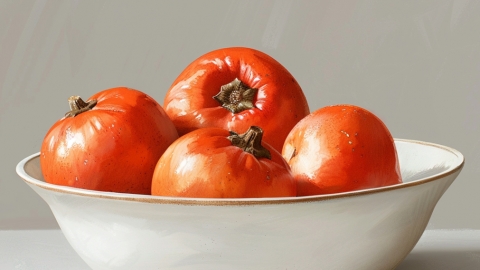Can people with gout eat persimmons?
Generally speaking, gout patients can eat persimmons in moderation. Detailed explanation is as follows:

Persimmons are considered low-purine foods, and moderate consumption generally does not cause significant fluctuations in blood uric acid levels, nor will they directly trigger gout attacks. Meanwhile, persimmons contain nutrients such as vitamins and dietary fiber, which can help replenish nutrients and promote gastrointestinal motility to support normal metabolism. However, it is important to choose ripe persimmons and avoid excessive consumption. It is recommended to eat half to one persimmon per serving to avoid overburdening the body.
When consuming persimmons, gout patients should avoid eating them on an empty stomach. On an empty stomach, the tannic acid in persimmons may combine with gastric acid and form indigestible substances. Particularly for gout patients who often have metabolic issues and potentially weaker gastrointestinal function, this should be taken into consideration. Persimmons should not be consumed in large quantities together with high-purine, high-protein foods such as seafood and animal offal, as improper pairing may still affect digestion despite their low-purine content. During an acute gout attack, when gastrointestinal function and overall physical condition are particularly sensitive, it is recommended to temporarily avoid eating persimmons. Patients may try small amounts after symptoms subside. If joint discomfort or gastrointestinal problems occur after consumption, stop immediately and consult a doctor.






